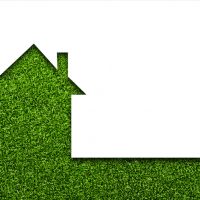
A poll of 458 lenders conducted by Mortgage Advice Bureau discovered that nearly all lenders who do not currently offer a green product, 98 per cent, will do so in the future.
Over the course of a year, the share of lenders offering a green mortgage product increased to more than half, up from a third, the study found.
Now, 95 per cent of respondents said they felt it was up to builders and lenders to provide more energy efficient homes, compared to the 89 per cent who said so a year ago suggesting more lenders are willing to do their part to help the UK reach net zero.
Some 95 per cent also said green mortgages would become a permanent offering, up from 92 per cent last year. A fifth of lenders have more than five different green mortgages available.
Ben Thompson, deputy CEO of Mortgage Advice Bureau said he would like to see this rise even more.
He added: “The climate issue is one we must act on, and every lender can play their part. With that in mind, it is really encouraging to see the uptick in lenders offering green mortgages, and letting people know about them is key.
“With COP27 in Egypt having just finished, the climate is once again front and centre, and we will always help lenders and intermediaries to push green mortgages.”
Homeowner action
A separate piece of research from the Building Societies Association (BSA) suggested more needed to be done to get homeowners on board with making their homes efficient.
While 55 per cent of homeowners considered retrofitting their homes over the next year – an improvement from 41 per cent when polled in September last year – there were signs of inaction.
Some 17 per cent thought about installing solar panels but just three per cent had done so. A further seven per cent considered other renewable energy sources, such as heat pumps, but just less than two per cent had them installed.
However, half of respondents have made other improvements over the last 12 months.
Some 29 per cent said they replaced lightbulbs with low energy options, 14 per cent changed windows or doors and 13 per cent improved insulation.
Barriers blocking improvement
Cost appears to be the main factor causing hesitancy when it comes to making a home sustainable, as cited by 52 per cent of respondents.
Almost half (47 per cent) said it would take too long to recover the costs while 36 per cent were unsure of how much money they would be saving.
For 29 per cent, a lack of affordable finance in the form of grants or loans was holding them back.
Property choice and value
Well over half (57 per cent) of respondents said cheaper energy tariffs would encourage them to buy an energy efficient home, while two-fifths said a cheaper mortgage would motivate them. More than a third (35 per cent) per cent said evidence that improvements would add value to their home would make them consider a greener property.
When asked what changes could add the most value, 68 per cent said replacing windows and doors, two-thirds said upgrading the central heating system and 64 per cent said installing solar panels. Meanwhile, 63 per cent said improving insulation would increase a property’s selling price.
Paul Broadhead, head of mortgage and housing policy at the BSA, said: “There is clearly a great deal more to do if the energy efficiency of our buildings is to be improved sufficiently to meet the government’s 2030 ambition. Positive progress is being made and a number of innovative ideas and approaches are already starting to be tested. It is certain that there will never be a one size fits all solution, although a fabric first approach seems sensible.
“Looking ahead, it is essential that consumers have the information that they need to plan the best approach for their home and confidence in what it will deliver.”
Don’t forget less efficient homes
Broadhead added: “Lenders must not be incentivised to lend only on the most energy efficient homes. It is lending on the most energy leaky homes that will deliver the greatest savings in energy consumption and carbon emissions.
“New-build homes should, by definition, be energy efficient and government should provide clarity as soon as possible on what they will and won’t do to support consumers who will be trying to bridge the gap between up-front costs and the payback period in these challenging times.”
















